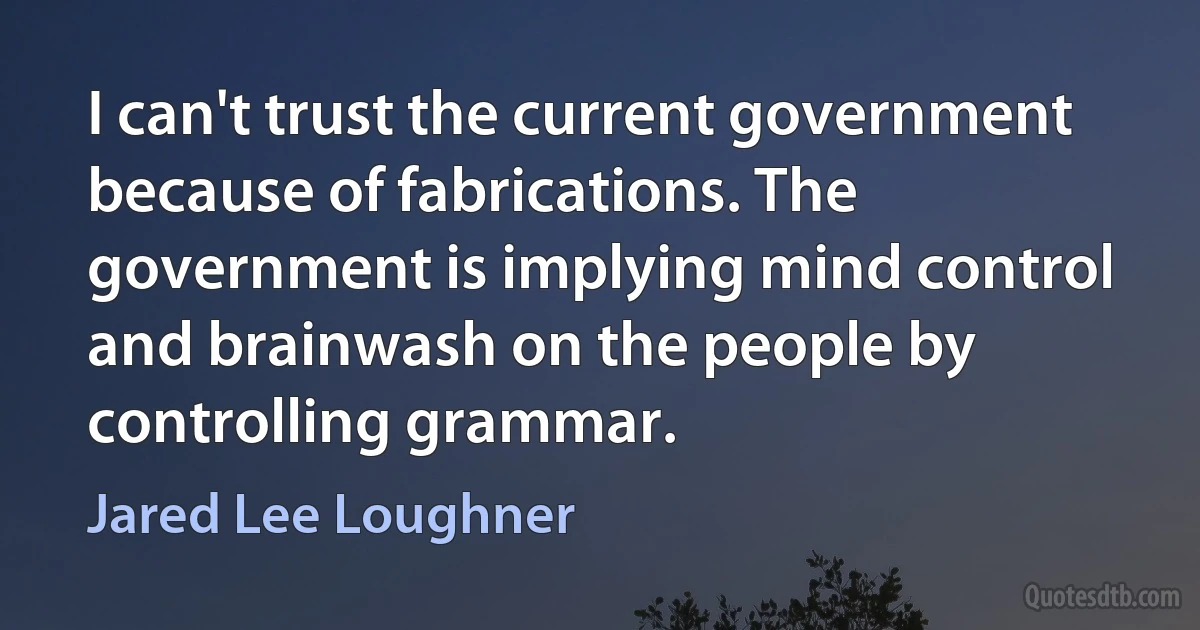Implying Quotes
The concept of need is often looked upon rather unfavorably by economists, in contrast with the concept of demand. Both, however, have their own strengths and weaknesses. The need concept is criticized as being too mechanical, as denying the autonomy and individuality of the human person, and as implying that the human being is a machine which "needs" fuel in the shape of food, engine dope in the shape of medicine, and spare parts provided by the surgeon.

Kenneth Boulding
Certain Socialist writers are fond of describing the Social-Democratic State of the future as implying the "emancipation of the proletarian and the woman." As regards the latter point, however, if emancipation is taken to include domination, we have not to wait so long. The highest development of modern capitalism, as exemplified in the English-speaking countries, has placed man to all intents and purposes, legally under the heel of woman. So far as the relations of the sexes are concerned, it would be the task of Socialism to emancipate man from this position, if sex-equality be the goal aimed at. The first step on the road towards such equality would necessarily consist in the abolition of modern female privilege.

Ernest Belfort Bax
Primarily, which is very notable and curious, I observe that men of business rarely know the meaning of the word 'rich'. At least, if they know, they do not in their reasoning allow for the fact, that it is a relative word, implying its opposite 'poor' as positively as the word 'north' implies its opposite 'south'. Men nearly always speak and write as if riches were absolute, and it were possible, by following certain scientific precepts, for everybody to be rich. Whereas riches are a power like that electricity, acting only through inequalities or negations of itself. The force of the guinea you have in your pockets depends wholly on the default of a guinea in your neighbour's pocket. If he did not want it, it would be of no use to you; the degree of power it possesses depends accurately upon the need or desire he has for it,- and the art of making yourself rich, in the ordinary mercantile economist's sense, is therefore equally and necessarily the art of keeping your neighbour poor.

John Ruskin
The formulation "ways to faith" could be interpreted as implying that faith is a conclusion a person may come to after pondering certain facts about the world-facts about history, nature, or consciousness. If that were the case, one could lead a person to this conclusion by presenting these facts to him and pointing out their implications. I, however, do not regard religious faith as a conclusion. It is rather an evaluative decision that one makes, and, like all evaluations, it does not result from any information one has acquired, but is a commitment to which one binds himself. In other words, faith is not a form of cognition; it is a conative element of consciousness.

Yeshayahu Leibowitz
Why, what is the matter with us? Are we going to palliate and excuse a palpable and flagrant outrage on the right of speech, by implying that only a particular description of persons should exercise that right? Are we, at such a time, when a great principle has been struck down, to quench the moral indignation which the deed excites, by casting reflections upon those on whose persons the outrage has been committed? After all the arguments for liberty to which Boston has listened for more than a quarter of a century, has she yet to learn that the time to assert a right is the time when the right itself is called in question, and that the men of all others to assert it are the men to whom the right has been denied?

Frederick Douglass
I am afraid, dear Edwin and Angelina, you expect too much from love. You think there is enough of your little hearts to feed this fierce, devouring passion for all your long lives. Ah, young folk! don't rely too much upon that unsteady flicker. It will dwindle and dwindle as the months roll on, and there is no replenishing the fuel. You will watch it die out in anger and disappointment. To each it will seem that it is the other who is growing colder. Edwin sees with bitterness that Angelina no longer runs to the gate to meet him, all smiles and blushes; and when he has a cough now she doesn't begin to cry and, putting her arms round his neck, say that she cannot live without him. The most she will probably do is to suggest a lozenge, and even that in a tone implying that it is the noise more than anything else she is anxious to get rid of.

Jerome K. Jerome
Truly, though kingship be not a title but a name of office that runs through the law, yet it is not so ratione nominis, but from what is signified. It is a name of office, plainly implying a Supreme Authority. Is it more, or can it be stretched to more? I say, it is a name of office, plainly implying the Supreme Authority, and if it be so, why then I would suppose, (I am not peremptory in any thing that is matter of deduction or inference of my own,) why then I should suppose that whatsoever name hath been or shall be the name, in which the Supreme Authority shall act; why, (I say) if it had been those four or five letters, or whatsoever else it had been, that signification goes to the thing. Certainly it does, and not to the name. Why then, there can be no more said, but this, why this hath been fixt, so it may have been unfixt.

Oliver Cromwell
The author's conviction on this day of New Year is that music begins to atrophy when it departs too far from the dance that poetry begins to atrophy when it gets too far from music but this must not be taken as implying that all good music is dance music or all poetry lyric. Bach and Mozart are never too far from physical movement.

Ezra Pound



